Science Department Overview
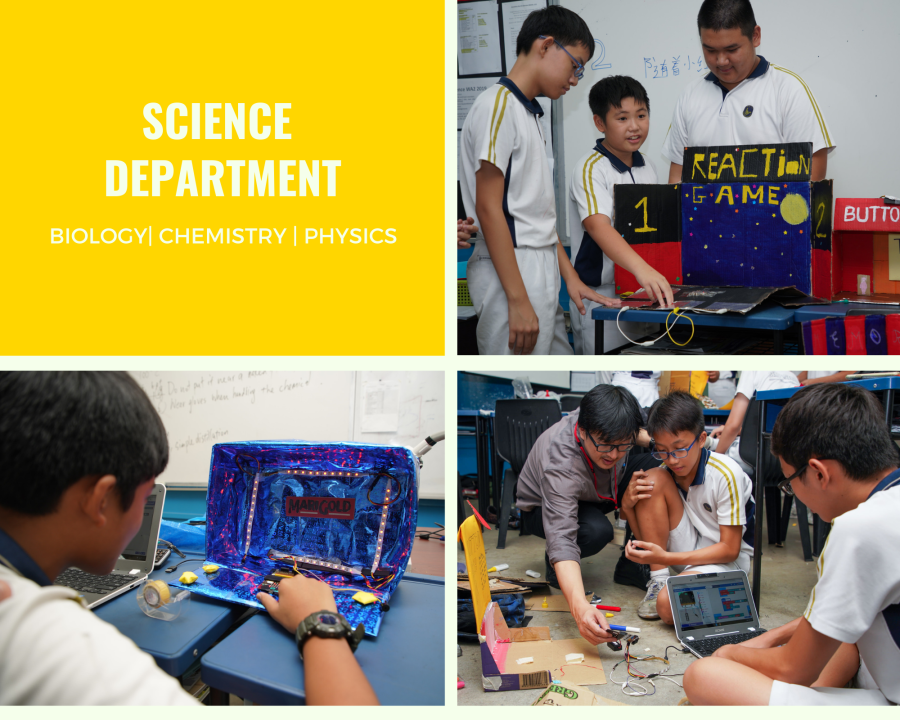
VISION, MISSION AND DEPARTMENT’S GOALS
Vision & Mission
Every Bendemeerian can use the knowledge of Science to engage, explore and extend their learning and appreciate the natural and physical world.
Department Goals
The department believes that every child is unique and has his own interests, talents and aspirations. In order to nurture and prepare them to be future ready in this fast-paced and dynamic environment, the department seeks to customise and enhance the learning experiences of each child through a well-designed science curriculum to:
-
encourage Bendemeerians to apply the knowledge, skill sets and competencies gained in Science to make responsible and well-informed decisions in their daily lives to solve problems, and contribute to society, to improve themselves and others
-
provide all Bendemeerians with a good foundation in Science learning and excite them in the pursuit of STEM related work
-
inculcate desired values and positive attitudes such as Resilience, Integrity, Curiosity, Inquisitiveness and Responsibility through role-modelling and the practices of thought and practice as a Scientist
Curriculum
In our curriculum design, we make reference to the CPDD revised science curriculum framework which encapsulates the twin goals of the science curriculum to prepare our students with diverse needs a strong foundation in learning science for effective citizenry, work and contribute to the betterment of their lives and others.
To achieve the department goals, students take the role of inquirers in their learning and the pursuit of Science is supported by teachers and partners as facilitators of the students’ learning experiences, to fuel students’ sense of inquiry and innovations, impart the passion and value of science to the students to appreciate its application around them.
Pedagogy
The department adopts the Inquiry-based Learning as the main pedagogical approach in our teaching and learning of science, which uses the 5Es model of inquiry (Engage, Explore, Explain, Elaborate, and Evaluate) to guide our lesson and programme design.
To deepen students’ interest and understanding in science learning, contextualised learning, an instructional approach that places the learning of academic content (scientific knowledge and skills) in situations or issues that are authentic and meaningful to the learners are used. This could include the use of phenomena in our daily lives, recent development in science, prototype making to trigger learning and interest, and sharpening their observation and analytical skills.
To help students connect to prior knowledge, to stimulate curiosity and to lay the groundwork for independent inquiry, questioning techniques are used to help students describe what they see or know and get them to make explanations. This is a thinking routine that asks students to describe something, such as an object or a concept, and then support their interpretation with evidence to promote thinking and understanding.
Assessment
Our assessment approach includes Assessment of Learning (AoL), Assessment for Learning (AfL) and also some aspects of Assessment as learning (AaL). Assessment is an integral part of the learning process. We believe the varied modes of assessments help us and the learners to better assess where they are, so that appropriate intervention can be taken to engage them in their learning and close the gaps. This includes our Performance-Based Assessment (PBA), quizzes, self and peer assessment, purposeful questioning and discussion, self-directed learning through SLS/google classroom and consolidation of learning through concept mapping and note taking.
Our Performance-based Assessment (PBA) is anchored on 3 principles: clarity, authenticity and accessibility which assess their skills, content, values, ethics and attitudes. The PBA is conducted for all sec 1 to 3 levels and comes in various modes to engage the different learners and also to assess them differently. Other than scientific conceptual understanding, they are also developing and practising other skills and competencies through the PBA tasks such as communication, analytical thinking, perspective taking, teamwork, doing research, decision making and also making connections between learning and application of science, that science is everywhere. These PBA are assessed via rubrics with evaluative criteria to help students develop a vision for success.
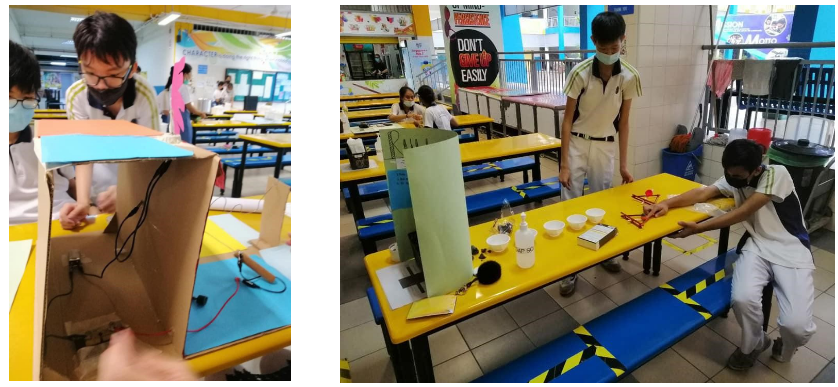
Students (3R8) using their conceptual understanding in science to create games and explaining the science behind the games to get their peers to engage in science learning in a fun way.
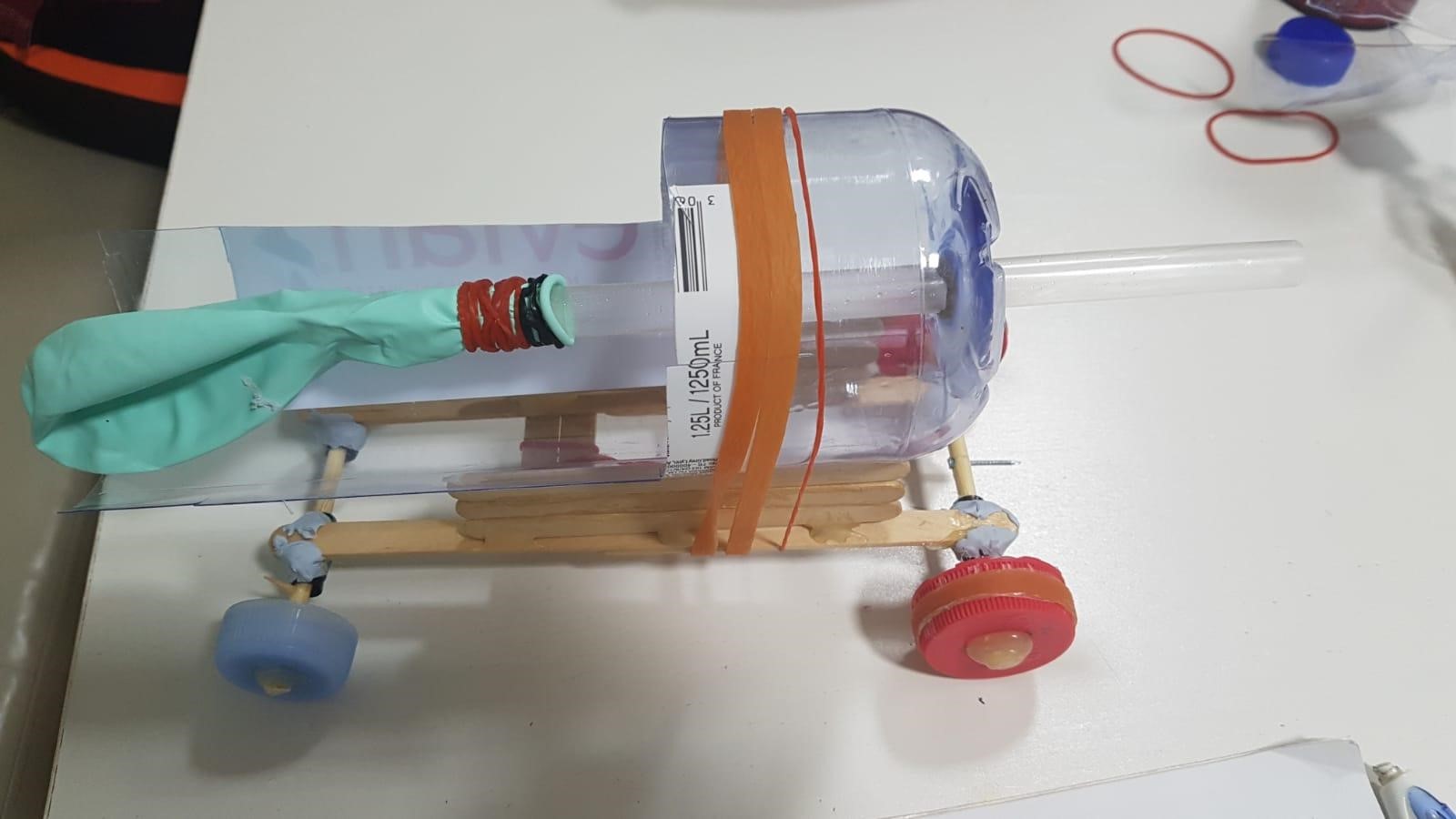
3R2 students engaging in the planning, ideation and construction of their self-propel vehicle using their understanding in Newtonian Mechanics and documented their learning through a reflection.
Overview of Science learning roadmap
The Science department learning roadmap depicts the spiral progression of the knowledge and process skills acquisition. The knowledge and process skills are built on and spiral from prior science learning in primary school education, with the lower secondary science education laying the foundation for upper secondary science learning and pursuing STEM-related fields in their post-secondary education. Department approaches and programmes are planned to complement science learning and application through the different levels.
| Tiered department goals | Level | Programme | Process skills |
|---|---|---|---|
| • Enthusing and growing their passion and interest through exploration and application in Science related activity • Developing their scientific literacy and key process skills to lay strong foundation in the different disciplines of Science • Explore and drawing connection within the different science disciplines |
Sec 1 | • ALP (Tier 1) • Integrative activity • Performance-based Assessment • LLP on organic farming • Learning journey |
Basic process skills • Observing • Classifying • Inferring • Predicting • Measuring • Communicating *note: some degree of exposure to integrative process skills especially for the express stream |
| Sec 2 | • ALP (Tier 1) • Integrative activity • Performance-based Assessment • LLP on care kit for elderly • Terrarium Competition, Elementz • Learning journey and field trips to mangrove, intertidal habitats |
||
| • Deepen their scientific literacy and other process skills • In-depth application of scientific concept for innovation driven by problem solving of authentic issue • Exposure to develop interdisciplinary thinking through STEM |
Sec 3 | • ALP (Tier 2) • Performance-based Assessment • Competitions (Science Olympiads, GMAC Challenge, IBQ) • Workshop/ Sharing by experts • Modelling • AEM/ EM on science related module • Learning journey |
Integrative process skills • communicating, • formulating hypotheses • Experimenting • recognizing variables • interpreting data • formulating models *note: basic process skills needed to support the integrative skills |
| Sec 4/5 | • ISP • Competitions (Olympiad, IBQ) • Sharing by experts |
||
| Science week, inquiry-based learning and questioning technique, concept mapping and summary skills, active use of authentic context in teaching and learning, alternative assessment | |||
Applied Learning Programme (ALP)
One of our key programmes is the Applied Learning Programme in health science and healthcare technology, using the Engage. Explore. Elaborate approach. From learning to understanding the problem through data analysis and hands-on activity, to exploring technology (Microbits) and applying what they have learnt in an authentic problem, students see how science can be integrated to solve problems in this programme.
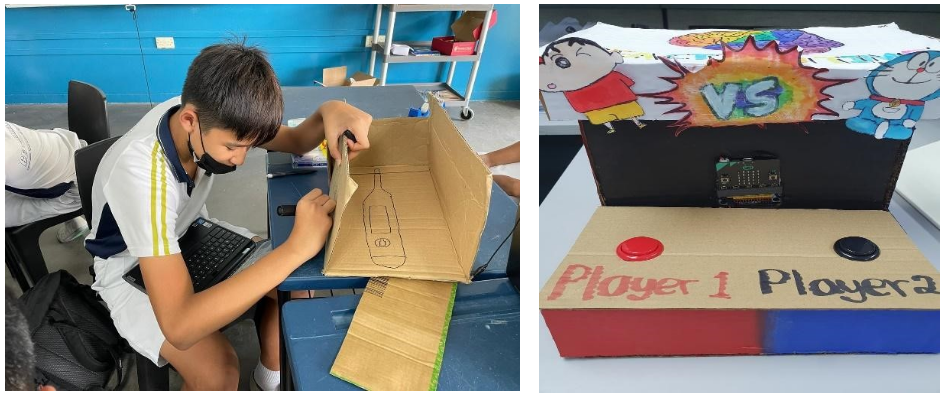 Our ALP programme in STEM education is featured in the MOE Facebook page. Check out the link here.
Our ALP programme in STEM education is featured in the MOE Facebook page. Check out the link here.
Science Week
Science Week provides a platform for authenticity and relevance of science learning for our students beyond the classroom learning. Exciting activities related to the theme of the Science Week are conducted to engage and excite the students. This includes showcasing of students’ work, everyday science activities, demonstration and quizzes.
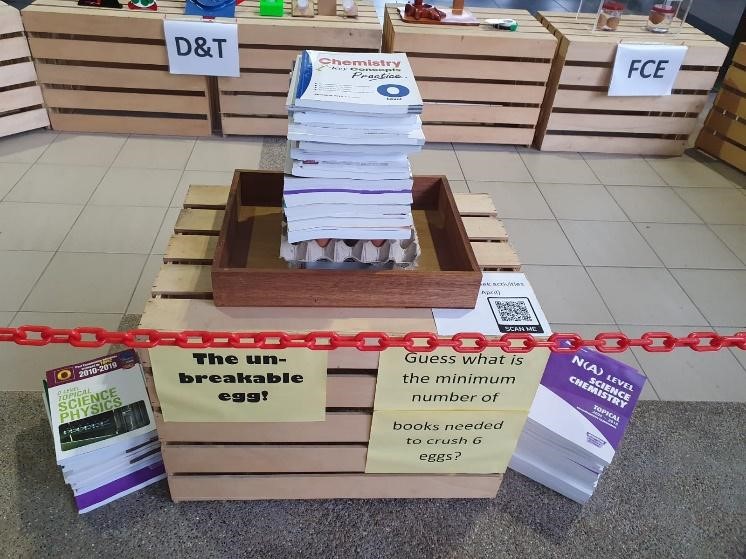
Stretch Programme
As every student learns at a different pace from his peers, to better cater to our students’ needs, the department sees to stretch them through three key areas: teaching and learning approach (within and beyond department, inter-department collaboration), external competitions such as Science Olympiads, GMAC challenge, International Biomedical Quiz, enrichment activity such as debates (within and outside school) and exposure to the science development around them through sharing/ workshop conducted by experts and scientific research work to widen their perspectives and experience.
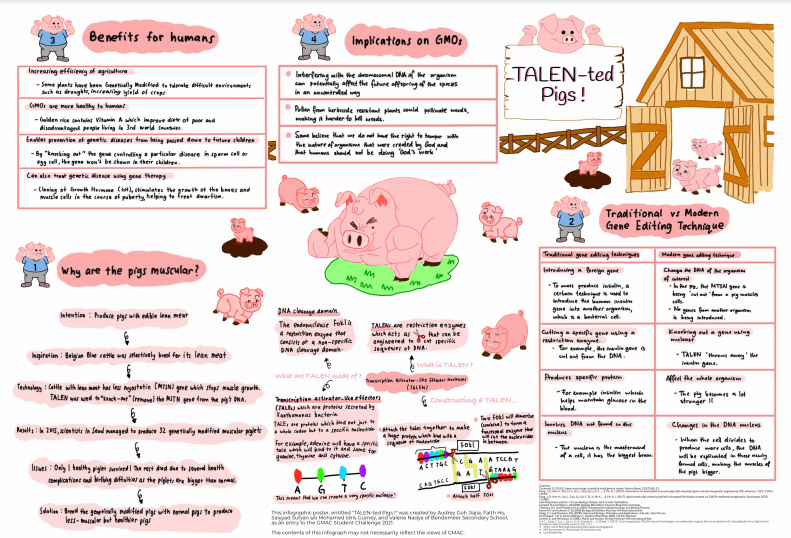
GMAC Challenge Students conducted a research on GMO and synthesized their learning using a poster representation.
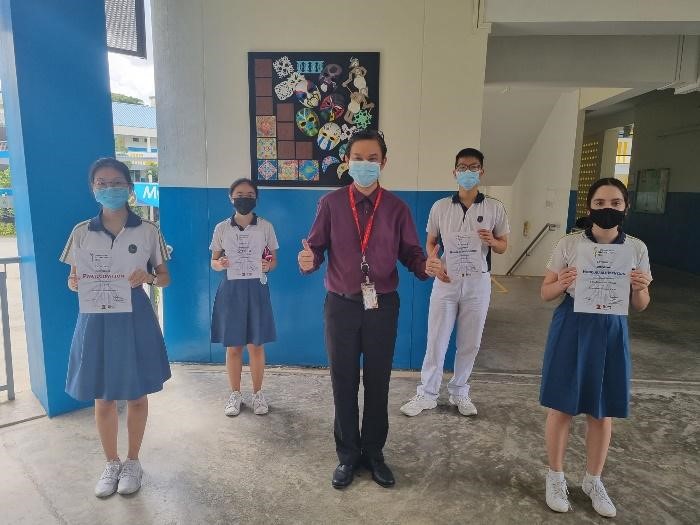
Students participated in the International Biomedical Quiz. Valerie Nadya (4R1) received the silver award.

